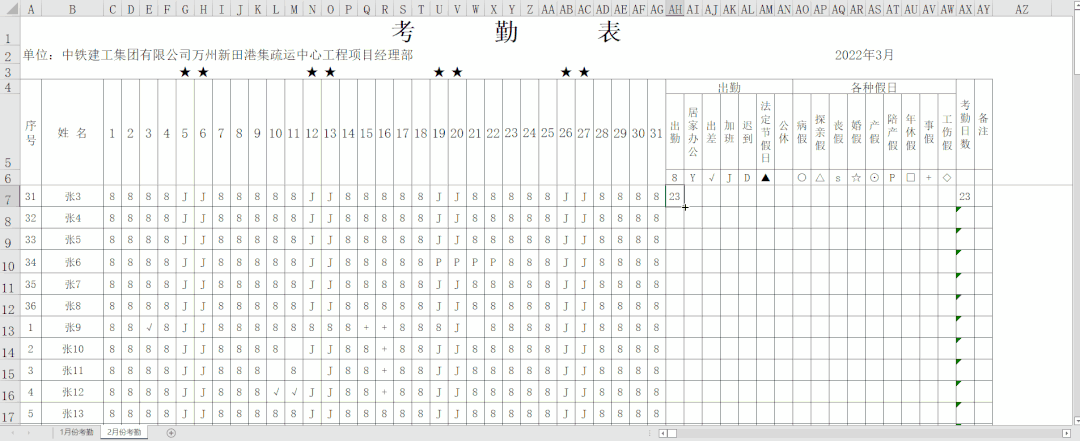初一英语知识点梳理,初一(七年级)英语语法知识点汇总—全册-今日头条
初一(七年级)英语语法知识点汇总—全册
初一(七年级)英语语法知识点汇总—全册
初一英语语法虽然是从简单的一些日常用语出发的,但语法中常会有一些知识点看起来很细小,容易被忽视,但这些知识点掌握不熟练,往往会造成一些语法应用上的错误。因此在学习初一英语语法时,要认真、细心,不要觉得一些地方不重要而得过且过。
下面从几个方面,总结出了初一英语语法,如果要复习英语句法的同学,可以参考一下。
目录
第一章 初一英语语法--词法…………………………………………04
一、名词……………………………………………………………04
1、名词的数…………………………………………………04
2、名词的格…………………………………………………06
二、代词……………………………………………………………07
三、动词…………………………………………………………08
1、第三人称单数……………………………………………08
2、现在分词………………………………………………08
四、形容词的级……………………………………………………10
五、数词…………………………………………………………11
第二章 初一英语语法--句式………………………………………12
一、陈述句…………………………………………………………12
二、祈使句…………………………………………………………12
三、疑问句…………………………………………………………13
第三章 初一英语语法—时态………………………………………17
一、一般现在时……………………………………………………17
一、现在进行时……………………………………………………17
第一章:初一英语语法--词法
一、名词
1、名词的数
我们知道名词可以分为可数名词和不可数名词,而不可数名词它没有复数形式,但可数名词却有单数和复数之分,复数的构成如下:
(1) 在后面加s。如:fathers, books, Americans, Germans, apples, bananas
(2) x, sh, ch, s, tch后加es。如:boxes, glasses, dresses, watches, wishes, faxes
(3)① 以辅音字母加y结尾的变y为i再加es 如:baby-babies, family-families, duty-duties, comedy-comedies, documentary-documentaries, story-stories
② 以元音字母加y结尾的直接加s。如:day-days, boy-boys, toy-toys, key-keys, ways
(4) 以o结尾加s(外来词)。如:radios, photos, 但如是辅音加o的加es:如: tomatoes西红柿, potatoes马铃薯
(5) 以f或fe结尾的变f为v再加es(s)。如:knife-knives, wife-wives, half-halves, shelf-shelves, leaf-leaves, yourself-yourselves
(6) 单复数相同(不变的)有:fish, sheep, deer鹿子, Chinese, Japanese
(7) 一般只有复数,没有单数的有:people,pants, shorts, shoes, glasses, gloves, clothes, socks
(8) 单词形式不变,既可以是单数也可以是复数的有:police警察局,警察, class班,同学, family家,家庭成员
(9) 合成的复数一般只加主要名词,多数为后一个单词。如:action movie-action movies, pen pal-pen pals; 但如果是由man或woman所组成的合成词的复数则同时为复数。如:man doctor-men doctors, woman teacher-women teachers
(10) 有的单复数意思不同。如:fish鱼 fishes鱼的种类, paper纸 papers报纸,卷子,论文, work工作 works作品,工厂, glass玻璃 glasses玻璃杯,眼镜, orange桔子水 oranges橙子, light光线 lights灯, people人 peoples民族, time时间 times时代, 次数, chicken 鸡肉 chickens 小鸡
(11)单个字母的复数可以有两种形式直接加s或’s。如:Is (I’s), Ks (K’s)。但如是缩略词则只加s。如:IDs, VCDs, SARs
(12) 特殊形式的有:child-children, man-men, woman-women, foot-feet, mouse-mice, policeman-policemen, Englishman-Englishmen
2、名词的格
当我们要表示某人的什么东西或人时,我们就要使用所有格形式。构成如下:
(1) 单数在后面加’s。如:brother’s, Mike’s, teacher’s
(2) 复数以s结尾的直接在s后加’,如果不是以s结尾的与单数一样处理。如:Teachers’ Day教师节, classmates’; Children’s Day六一节, Women’s Day三八节
(3) 由and并列的名词所有时,如果是共同所有同一人或物时,只加最后一个’s,但分别拥有时却分别按单数形式处理。如:Mike and Ben’s room迈克和本的房间(共住一间),Mike’s and Ben’s rooms迈克和本的房间(各自的房间)
二、代词
项目 人称代词 物主代词 指示代词 反身代词
人称 主格 宾格 形容词 名词性
第一人称 单数 I me my mine myself
复数 we us our ours ourselves
第二人称 单数 you you your yours yourself
复数 you you your yours yourselves
第三人称 单数 she her her hers herself
he him his his himself
it it its its this that itself
复数 they them their theirs these those themselves
三、动词
1、第三人称单数
当动词是第三人称单数时,动词应该像名词的单数变动词那样加s,如下:
(1) 一般在词后加s。如:comes, spells, waits, talks, sees, dances, trains
(2) 在x, sh, ch, s, tch后加es。如:watches, washes, wishes, finishes
(3) ① 以辅音字母加y结尾的变y为i再加es。如:study-studies, hurry-hurries, try-tries
② 以元音字母加y结尾的直接加s。如:plays, says, stays, enjoys, buys
(4) 以o结尾加es。如:does, goes
(5) 特殊的有:are-is, have-has
2、现在分词
当我们说某人正在做什么事时,动词要使用分词形式,不能用原形,构成如下:
(1) 一般在后加ing。如:spell-spelling, sing-singing, see-seeing, train-training, play-playing, hurry-hurrying, watch-watching, go-going, do-doing
(2) 以不发音e的结尾的去掉e再加ing。如:dance-dancing, wake-waking, take-taking, practice-practicing, write-writing, have-having
(3) 以重读闭音节结尾且一个元音字母+一个辅音字母(注意除开字母组合如show –showing, draw-drawing)要双写最后的辅音字母再加ing。如:put-putting, run-running, get-getting, let-letting, begin-beginning
(4) 以ie结尾的变ie为y再加ing。如:tie-tying系 die-dying死 lie-lying 位于
四、形容词的级
我们在对两个或以上的人或物进行对比时,则要使用比较或最高级形式。构成如下:
1、 一般在词后加er或est(如果是以e结尾则直接加r或st)。如:greater-greatest, shorter –shortest, taller –tallest, longer –longest, nicer- nicest, larger -largest
2、 以重读闭音节结尾且1个元音字母+1个辅音字母(字母组合除外,如few-fewer fewest)结尾的双写结尾的辅音再加er /est。如:big-bigger biggest, red-redder reddest, hot-hotter hottest
3、 以辅音字母+y结尾的变y为i加er/est。如:happy-happier happiest, sorry-sorrier sorriest, friendly-friendlier friendliest(more friendly most friendly), busy-busier busiest, easy-easier easiest
4、 特殊情况:(两好多坏,一少老远)
good/well - better best many/much - more most bad/ill – worse worst
little- less least old- older/elder oldest/eldest far- farther/further farthest/furthest
五、数词 (基变序,有规则;一、二、三,自己背;五、八、九、十二;其它后接th;y结尾,变为i, eth跟上去。) first, second, third; fifth, eighth, ninth, twelfth; seventh, tenth, thirteenth, hundredth; twenty-twentieth, forty-fortieth, ninety-ninetieth
第二章、初一英语语法——句式
一、陈述句
肯定陈述句 a) This is a book. (be动词)
b) He looks very young. (连系动词)
c) I want a sweat like this. (实义动词)
d) I can bring some things to school. (情态动词)
e) There’s a computer on my desk. (There be结构)
否定陈述句 a) These aren’t their books. b) They don’t look nice.
c) Kate doesn’t go to No. 4 Middle School. d) Kate can’t find her doll.
e) There isn’t a cat here. (=There’s no cat here.)
二、 祈使句
肯定祈使句 a) Please go and ask the man. b) Let’s learn English!
c) Come in, please.
否定祈使句a) Don’t be late. b) Don’t hurry.
三、 疑问句
1、 一般疑问句
(1) Is Jim a student?
(2) Can I help you?
(3) Does she like salad?
(4) Do they watch TV?
(5) Is she reading?
肯定回答:
(1) Yes, he is.
(2) Yes, you can.
(3) Yes, she does.
(4) Yes, they do.
(5) Yes, she is.
否定回答:
(1)No, he isn’t.
(2) No, you can’t.
(3)No, she doesn’t.
(4)No, they don’t.
(5) No, she isn’t.
2、选择疑问句 Is the table big or small? 回答 It’s big./ It’s small.
3、特殊疑问句
(1)问年龄 How old is Lucy? She is twelve.
(2)问种类 What kind of movies do you like? I like action movies and comedies.
(3)问身体状况 How is your uncle? He is well/fine.
(4)问方式 How do/can you spell it? L-double O-K.
How do we contact you? My e-mail address is cindyjones@163.com.
(5)问原因 Why do you want to join the club?
(6)问时间 What’s the time? (=What time is it?) It’s a quarter to ten a.m..
What time do you usually get up, Rick? At five o’clock.
When do you want to go? Let’s go at 7:00.
(7) 问地方 Where’s my backpack? It’s under the table.
(8)问颜色 What color are they? They are light blue.
What’s your favourite color? It’s black.
(9)问人物 Who’s that? It’s my sister.
Who is the boy in blue? My brother.
Who isn’t at school? Peter and Emma.
Who are Lisa and Tim talking to?
(10)问东西 What’s this/that (in English)? It’s a pencil case.
What else can you see in the picture? I can see some broccoli, strawberries and hamburgers.
(11)问姓名 What’s your aunt’s name? Her name is Helen./She’s Helen.
What’s your first name? My first name’s Ben.
What’s your family name? My family name’s Smith.
(12)问哪一个 Which do you like? I like one in the box.
(13)问字母 What letter is it? It’s big D/small f.
(14)问价格 How much are these pants? They’re 15 dollars.
(15)问电话号码 What’s your phone number? It’s 576-8349.
(16)问谓语(动作) What’s he doing? He’s watching TV.
(17)问职业(身份) What do you do? I’m a teacher.
What’s your father? He’s a doctor.
第三章、初一英语语法——时态
一、一般现在时
一般现在时表示普遍、经常性的或长期性的动作时使用一般现在时,它有:
Be 动词:She’s a worker. Is she a worker? She isn’t a worker.
情态动词:I can play the piano. Can you play the piano? I can’t play the piano.
行为动词:They want to eat some tomatoes. Do they want to eat any tomatoes? They don’t want to eat any tomatoes.
Gina has a nice watch. Does Gina have a nice watch? Gina doesn’t have a watch.
2、现在进行时
现在进行时表示动词在此时正在发生或进行就使用进行时态,结构为sb be v-ing sth + 其它.
I’m playing baseball. Are you playing baseball? I’m not playing baseball.
Nancy is writing a letter. Is Nancy writing a letter? Nancy isn’t writing a letter.
They’re listening to the pop music. Are they listening the pop music? They aren’t listening to the pop music. 祈使句(Imperative Sentence)
定义:用于表达命令、请求、劝告、警告、禁止等的句子叫做祈使句,祈使句最常用于表达命令,因此在学校文法中也常称为命令句。
祈使句因对象(即主语)是第二人称,所以通常都省略。祈使句的动词都为一般现在时,句末则使用句号来表示结束。例:
Go and wash your hands.
(去洗你的手。——命令)
Be quiet, please.(Please be quiet.)
(请安静。——请求)
Be kind to our sister.
(对姊妹要和善。——劝告)
Watch your steps.
(走路小心。——警告)
Look out!Danger!
(小心!危险!——强烈警告,已如感叹句)
Keep off the grass.
(勿践草坪。——禁止)
No parking.
(禁止停车。——禁止)
祈使句的否定通常使用“Don't …”,例如:
Don't let the dog in. (不要让那只狗进来。)
Don't touch, please. (请不要用手触摸。)
Don't be silly. (别傻了。)
祈使句也常把主语“You”表达出来,使对方听起来觉得柔和些,例如:
You go and tell him, Chris. (克里斯你去告诉他。)

50秒】轻松记忆完【一副扑克牌】但是……

背书慢是脑子笨吗,怎样背书又快又好?谨记有效背诵的重要性



提高记忆力,经常性遗忘事情?教你10招,有效提高你的记忆力




增强记忆力训练方法,【快速增强记忆力的45个方法】
云贵川北上广的顺口溜,地理记忆顺口溜(大全)



精选推荐
- [记忆方法] 最有效的备考方法,法考如何备考,2021年高考备考:8种高效记忆方法
- [记忆方法] 考前快速大量记忆技巧,最有效的备考方法,考前冲刺:一消备考也要动脑筋,这样记忆方法大多数考生并不知道
- [记忆方法] 怎样快速记忆知识点且记得牢,考前快速大量记忆技巧,会计从业备考不放假,六大归纳记忆法带你飞!
- [记忆方法] 快速记忆方法的小窍门,怎样快速记忆知识点且记得牢,这些记忆方法让你学习、备考的效率大大提升!
- [精品记忆课] 记忆课程有没有效果,记忆力课程,“超强记忆”吸引家长买了课,没上几节校长就失联,41名家长能要回16万余元的培训费用吗?
- [精品记忆课] 最强大脑记忆训练法视频,记忆课程有没有效果,超强记忆系统课_第2节 底层逻辑篇 超强记忆系统课_第2节
- [古诗词记忆] 孩子记忆力差,背书困难怎么办,有什么快速背书的方法,有用的背书方法,快收藏码住吧~
- [记忆方法] 记忆的方法和技巧,记忆宫殿训练方法,技巧:熟记这些顺口溜,轻松记忆历史朝代知识
- [记忆方法] 历史朝代记忆口诀,记忆的方法和技巧,我国历史朝代顺序记忆口诀
- [古诗词记忆] 文科怎么背怎样才能记得住,文科背书怎么背得快又牢固,文科成绩难提高?你需要这12个方法














